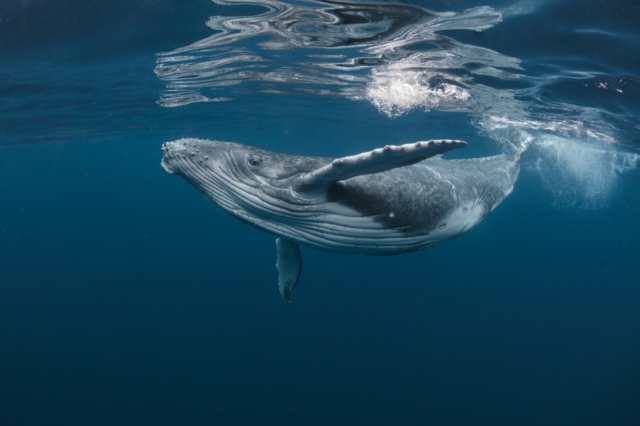Law Firm in Athens Greece - Ioannis Tsamichas
22 Jan
Spyros-Nikitas at News24|7 “Whales at the heart of ESG and climate change”

The importance of ESG factors in business decision-making processes is growing in the evolving field of corporate environmental responsibility. In this context, and in an effort to avoid the risk of unforeseen harm from proposed but untested high-tech solutions, “earth-tech” carbon sequestration approaches are coming into focus, where natural processes and organisms successfully fill in the gaps of our current technological capabilities.
One approach of flagship importance for saving the planet, and highly effective according to the available evidence, is increasing the global population of whales, as it emerges as an international ‘non-technological’ strategy for capturing more carbon, helping to protect the environment.
Large whales, in particular, have a significant carbon sequestration capacity, storing carbon in adipose tissue during their lifetime. When they die, they sink to the ocean floor, where each great whale sequesters an average of 33 tonnes of CO2, removing carbon from the atmosphere for centuries, while a tree can only absorb up to 48 kg of CO2 per year. The term ‘whale pump’ rightly highlights the crucial role of whales in marine nutrient recycling, particularly in the fertilisation of phytoplankton, which has a significant impact on atmospheric CO2 levels. Phytoplankton not only contributes at least 50% of the oxygen in the atmosphere, but achieves this by sequestering about 37 billion metric tons of CO2, estimated to be 40% of all CO2 produced. By comparison, it is estimated that this is equivalent to the amount of CO2 sequestered by 1.70 trillion trees – 4 Amazon forests – or 70 times the amount absorbed by all the trees in US national and state redwood parks each year.
Researchers at the International Monetary Fund (IMF) estimate that the economic value of a whale’s carbon sequestration potential during its lifetime exceeds $1 trillion. This valuation is critical for considering legal implications and developing international mechanisms similar to the UN’s REDD program for forest conservation. Recognizing that deforestation is responsible for 17% of carbon emissions, the REDD program provides incentives for countries to conserve their forests as a means of keeping CO2 out of the atmosphere. In a similar way, we can create financial mechanisms to promote the recovery of the world’s whale populations. Incentives in the form of subsidies or other compensation could help those who incur significant costs as a result of whale conservation. For example, shipping companies could be compensated for the costs of changing shipping routes to reduce the risk of collisions.
This solution, however, raises questions that are difficult to answer. Firstly, there must be a financial facility to protect whales and other natural assets. However, exactly how many resources are we prepared to spend on the protection of whales? The IMF estimates that if whale numbers return to pre-whaling levels, when they were capturing about 1.7 billion tonnes of CO2 per year, it would be worth subsidising the whales’ CO2 capture efforts at around $13 per person per year. Even a 1% increase in phytoplankton productivity due to whale activity would sequester hundreds of millions of tons of additional CO2 per year, equivalent to the sudden appearance of 2 billion mature trees.
In any case, despite the drastic reduction in commercial whaling, whales still face significant risks to their survival, including injuries from ships, entanglement in fishing nets, plastic waste carried into the water and noise pollution. The need for integrated approaches that include legal, economic and technological solutions to address cetacean mortality is urgent.
Incorporating whale survival into the goals of the 190 countries that signed the 2015 Paris Agreement would be a checkmate move to combat climate risk.
Οι φάλαινες στο επίκεντρο των ESG και της κλιματικής αλλαγής
Share this post
Βook your appointment.
We succeed together fighting for Right and Justice.
Call Us
+30 210 363 8590
